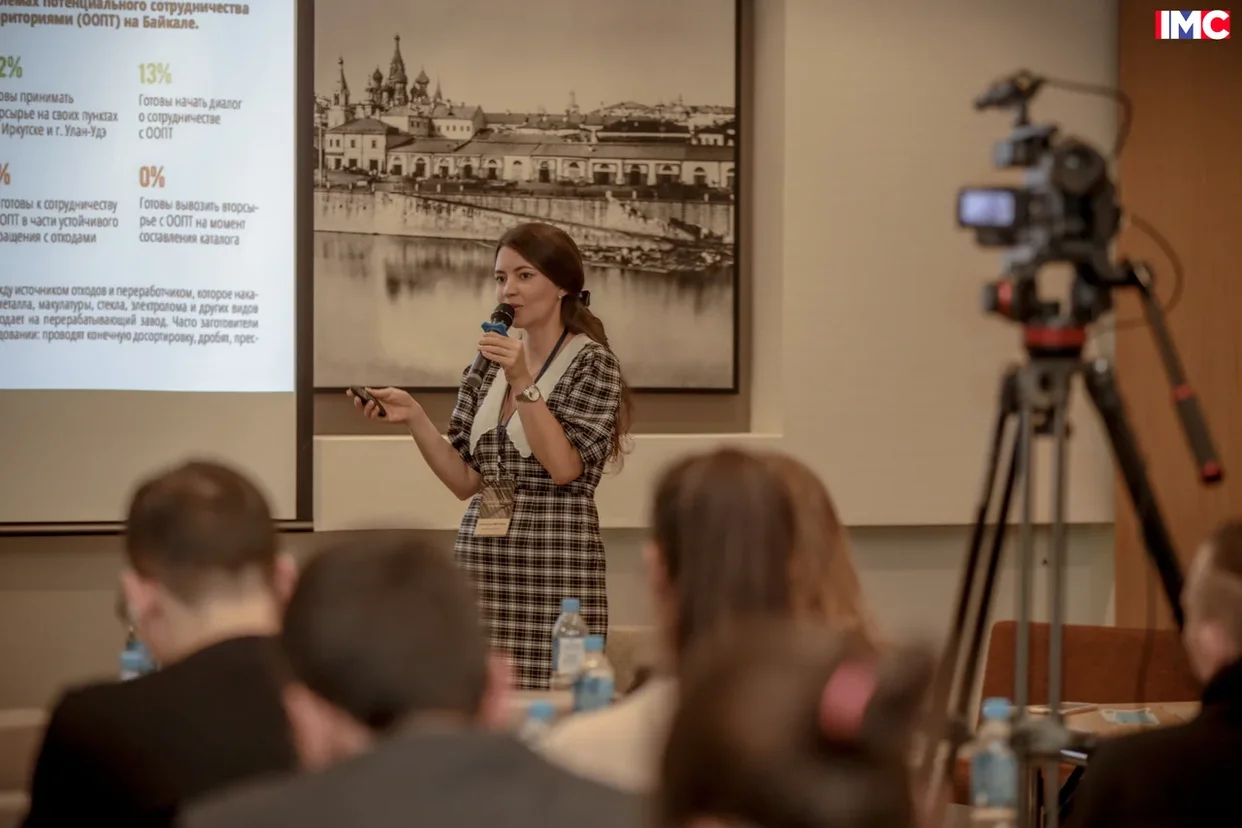On September 22-24, the Forum «ESG. Money. Business. Good» took place. During the Forum, a discussion panel «GR in ESG» was held. Participants discussed the possibilities of dialogue with the authorities in the field of solving challenges on sustainable development.
Anastasia Tsvetkova, General Director of Lake Baikal Foundation, presented the Trash Free National Parks project in the context of the conversation through the prism of generating data useful for making system decisions. Anastasia noted that the project was based on the task of piloting separate waste collection in the Zabaikalsky National Park. To do this, the Foundation conducted a study on the morphology of waste in the containers of the park, made a sociological survey of visitors about their willingness to participate in separate collection, studied the specifics of the removal of recyclables by operators, including possible volumes, frequency, cost of services. Based on the results of the work done, the optimal scheme for the introduction of separate collection in the park was selected, as well as systemic difficulties were identified that do not allow it to be financially profitable for the territory. The accumulated knowledge base was systematized and presented at the site of the Agency for Strategic Initiatives, as well as to the Ministry of Natural Resources of the Russian Federation and the REO PPK. As a result, a Roadmap for waste management in protected areas was released at the level of the relevant ministry, according to which measures to eliminate accumulated damage in protected areas will be strengthened in 2022, and recommendations will also be created for a differentiated approach to the introduction of separate collection in national parks.
Separately, in her speech, Anastasia Tsvetkova stressed that the project was made possible thanks to the support of both the Presidential Grants Foundation and corporate partners. The resource base of the project and work for a common goal often turns out to be more effective than a specially created project at the NGO level under the exclusive mention of the brand. When choosing NGOs for cooperation, you need to pay attention to their approaches to projects, whether they have a systemic change behind them or are aimed at a short-term result, the achievement of which will require new resources annually. It is important to pay attention to the communication of colleagues, their ability to conduct a dialogue with stakeholders. At the same time, it is also important to remember that non-profit organizations do their job by providing expertise, developing projects, providing consultations, and professional people are behind all the work.


